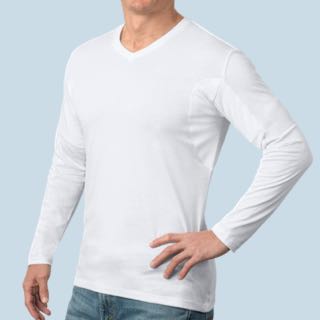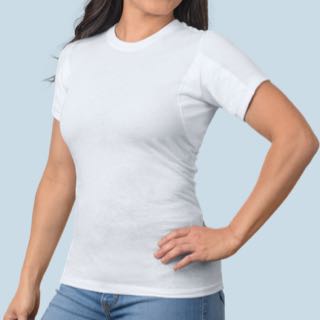What Is Supima Cotton: Benefits, Uses & Care
You’ve probably seen “Supima cotton” on the tag of your premium clothing – but what is Supima cotton and what makes it so special?
Supima cotton is a high-quality fiber that is ultra-soft, luxurious and lightweight. Cultivated in the United States, it’s a highly sought-after material that composes high-end clothing, bedsheets and more.
Here’s everything you need to know about Supima cotton, from what it is and how it’s made to how to care for it.
- What is Supima cotton?
- How Supima cotton is made
- Benefits of Supima cotton
- How is Supima cotton used?
- How to care for Supima cotton
- FAQs
What Is Supima Cotton?
Supima cotton is a high-quality type of cotton made from Gossypium Barbadense, a tropical perennial that yields cotton with long, silky fibers. It represents less than 1% of cotton grown in the world, and it is grown only in the United States – California, Arizona, Texas and New Mexico, to be exact.
Its legacy dates back over 100 years when it was first discovered in Sacaton, Arizona. Named after the Native Americans local to the area, the Pima, it was first used for cording in automobile tires and fabric for airplane fuselage before it was used commercially.
Supima cotton is unique because its fibers are much longer than those of conventional cotton, giving it extra strength, softness and color-retaining abilities. Known for its exceptional quality and ultra-soft feel, it’s a popular choice for premium products like shirts, bedsheets, blankets and pillowcases.
From Farm to Fabric: How Supima Cotton Is Made
While much conventional cotton is picked using heavy machinery and automated processes, much of the manufacturing involved in harvesting Supima cotton is done by hand. Here’s how it’s done:
- Seeds are handpicked from the Gossypium Barbadense plant.
- The seeds are stripped of their fibers, which are then compressed into bales.
- The bales are transferred to a production facility.
- The bales are mixed and woven into a long strand via a process called carding. This can be done via machine automation or by hand.
- The strands are combed to remove impurities and transferred onto large spools called bobbins.
- The strands are spun into yarn and are ready to be woven into fabric.
Many farmers involved in the process of harvesting Supima cotton and weaving the fabric make an effort to use sustainable, organic processes. From GPS-navigated tractors to satellite technology and soil monitors, Supima cotton is grown using state-of-the-art technology to make as little of an impact on the environment as possible.
Benefits of Supima Cotton
Supima cotton is one of the most luxurious, comfortable fabrics on the market. Here’s why it stands out from the crowd:
- Comfort. Supima cotton is known for its extraordinary comfort, attributed to its long fibers that give it a silky smooth texture.
- Breathability. Supima cotton is naturally breathable, making clothes and bedsheets an ideal choice for warm environments and those prone to sweating.
- Color retention and vibrancy. Fabrics composed of Supima cotton boast excellent color retention and maintain the vibrancy of dyed fabrics over time.
- Longevity and durability. Because of its quality, Supima cotton lasts longer than fabrics composed of conventional cotton. As a result, these products are made to last, requiring fewer replacements over time.
- Pilling resistance. Supima cotton does not pill over time, so it stays soft and looks as good as new several years down the line.
- Ease of care. Supima cotton is generally easy to care for, allowing for machine washing and drying without compromising quality.
How Is Supima Cotton Used
Supima cotton’s quality, breathability and softness make it an ideal choice for a wide array of high-end consumer products, like clothes, bedsheets, pillowcases and blankets.
Clothes made of Supima cotton are breathable, enhancing airflow to and from the skin to keep you cool and dry. And, thanks to its superior quality, it’s comfortable and smooth against the skin. Many premium undershirts, t-shirts, socks and underwear are made of Supima cotton blends.
Supima cotton bedsheets, pillowcases and blankets are a superior choice for those who tend to overheat or sweat throughout the night. Not only are they lightweight, but they’re ultra soft, too. Several luxury bedding brands use Supima cotton in their fabric blends to achieve comfort and quality.
How to Care for Supima Cotton
To ensure that your products stand the test of time, there are a few best practices to keep in mind when you’re washing, cleaning and drying Supima cotton:
- Turn garments inside out before washing. This will minimize friction and potential (though unlikely) pilling.
- Wash in cold temperatures. To preserve the quality of the fibers, it’s best to machine wash using cold water and a mild detergent.
- Avoid using bleach. Bleach may weaken the fibers. Try using white vinegar or baking soda as a gentler alternative.
- Air dry your products. If air drying isn’t possible, dry them on a low heat setting.
- Iron with care. If ironing is necessary, use a low to medium heat setting or use a wrinkle-release spray.
- Read care labels. Some Supima cotton blends have specific care requirements, so it’s a good idea to check the labels before washing.
FAQs
Have more questions about Supima cotton? Here’s everything you should know:
Is Supima Cotton Expensive?
Supima cotton is generally more expensive than regular cotton due to its exceptional quality and rarity. Furthermore, the production costs associated with cultivating and processing Supima cotton are higher than those of regular cotton. These differences are usually marked by higher numbers on the price tag.
Does Supima Cotton Wrinkle?
Because of Supima cotton’s quality, it resists wrinkles and holds its shape well in comparison to other types of fabric. However, no fabric is completely wrinkle-resistant – so it’s a good idea to hang Supima cotton products or fold them gently.
Does Supima Cotton Shrink, Stretch or Pill?
Like other cotton materials, Supima cotton can shrink and stretch when washed in hot water or dried at high temperatures. However, this is easily avoided when following proper care instructions.
Perhaps one of the most desirable qualities of Supima cotton is that it does not pill. Pills are balls of cotton that appear on cotton products as they’re worn and washed. Most types of cotton pill after only 10 uses, while Supima cotton resists pilling for years. To resist pilling for as long as possible, stick to hang-drying your Supima cotton products or dry them at low temperatures.
Does Supima Cotton Make You Sweat?
Supima cotton will not make you sweat – in fact, it’s quite the opposite. Supima cotton is lightweight and breathable, making it an ideal fabric choice for those who sweat heavily. So, if you’re a heavy sweater, clothes and bedsheets made of Supima cotton are a worthy investment. Supima cotton also has natural anti-odor properties.
What’s the Difference Between Supima Cotton and Cotton?
Supima cotton and regular cotton are two different species of cotton, and their difference lies in the length of their fibers.
While common types of cotton fibers measure about 1 inch, the fibers that compose Supima cotton are about 1.5 inches – so the fibers create stronger, softer yarn than the typical cotton plant. Because regular cotton fibers are shorter, they’re rougher and more likely to pill on the surface of the fabric. The longer fibers that compose Supima cotton are more comfortable, retain color longer and resist pilling over time.
What’s the Difference Between Supima and Pima Cotton?
Pima cotton is a term used to describe high-quality cotton, but there are no rules on what can and cannot be labeled “Pima” cotton. So, while a product may be labeled as Pima cotton, the fibers that compose the cotton may not actually be extra long. Supima® is the trademark that labels American-grown, extra-long cotton that is sourced through a licensed supply chain.
If you’re looking for true high-quality cotton fabric or products, look for the Supima® label.
Is Supima Cotton Environmentally Friendly?
Supima cotton is generally considered more environmentally friendly than conventional cotton. This is largely because longer cotton fibers require less machine processing, resulting in fewer CO2 emissions. And, because Supima cotton is primarily grown in the United States, regulations and farming practices are more stringent than those in other parts of the world.
Because of Supima cotton’s quality and resistance to shrinking, stretching and pilling, it will outlive its cheaper counterparts. That considered, you won’t have to replace your Supima cotton products as frequently, reducing the frequency of buying replacements.
Get Your Supima Cotton Anti Odor Shirt
With Supima cotton, you get the luxury of a high-end product with the practicality of everyday clothing.
Thompson Tee’s Premium Anti Odor Shirts are made of 50% Supima cotton and 50% MicroModal blend, which work together to compose a luxurious feel and tailored look. Designed in the USA, they trap and neutralize skin bacteria, eliminating 99.9% of odor for 24/7 freshness. Pair it underneath your favorite T-shirt or dress shirt or wear it as a simple standalone statement for confidence that lasts all day long.
Don’t let embarrassing odor keep you from living your best life. Try Thompson Tee’s Anti Odor T-shirts today!


